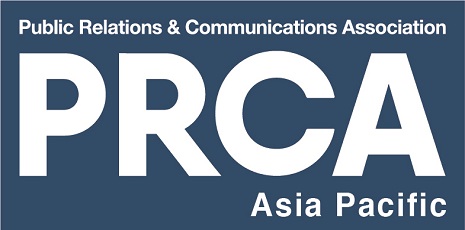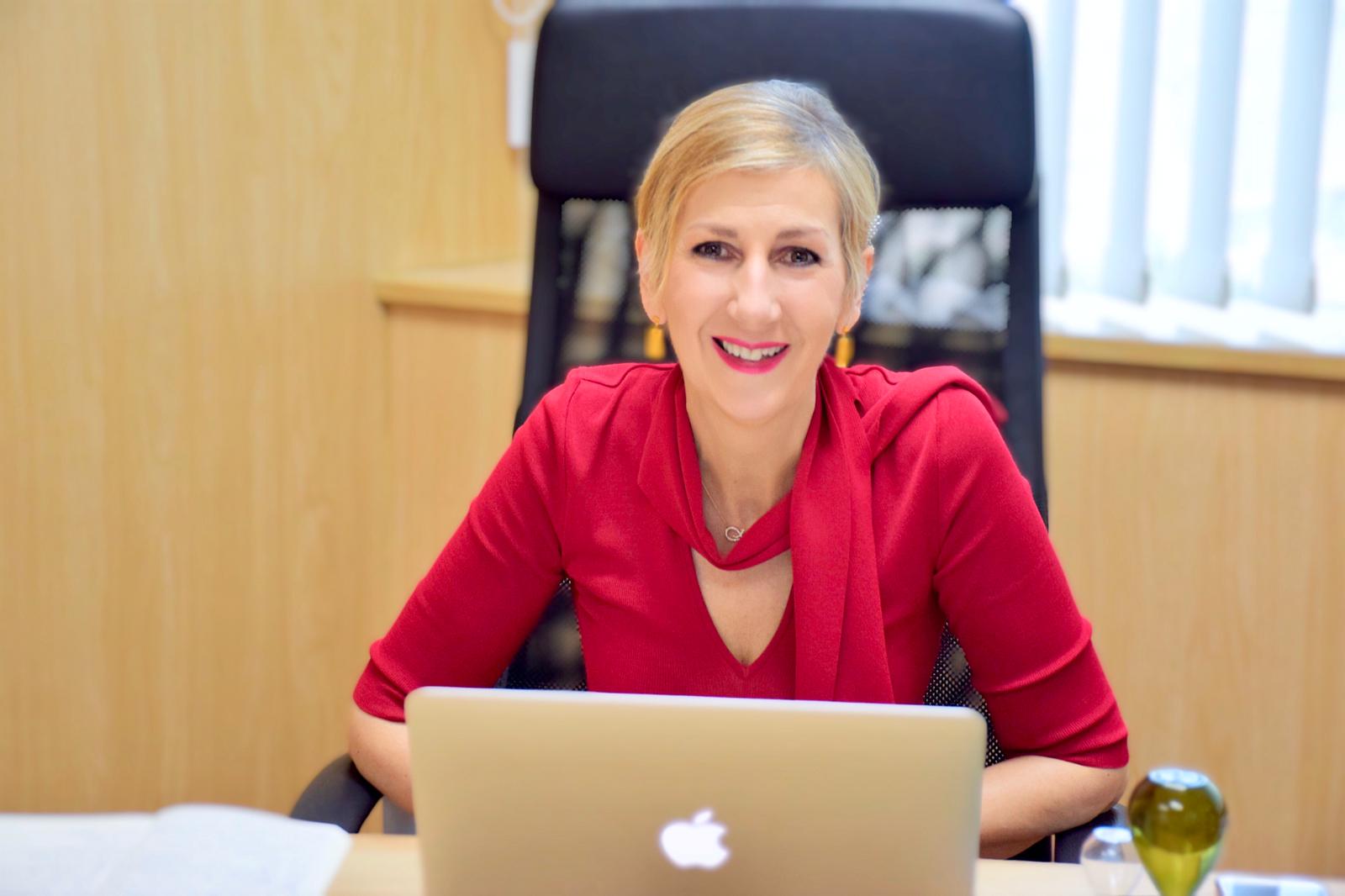The COVID-19 crisis has had a profound impact on public relations professionals across the world. Despite the ongoing uncertainty, communications are playing an essential role connecting stakeholders and helping organisations to make sense of their new environments. Messaging and communication have never been more critical to business.
This exclusive Q&A series spotlights the communications professionals behind the organisations working the COVID-19 crisis.
In this week’s Q+A, Karin Lohitnavy, Founder, Midas PR discusses the impact the global pandemic has made on Midas PR in Thailand.
How has the COVID-19 crisis affected you and your organisation?
This pandemic has allowed us to evolve, adapt and find new ways for our clients to achieve their goals and objectives. Some of our clients had to rethink their strategies, or even considered putting their communications on hold. It has been challenging for the team as well as for businesses that were at least temporarily closed — maintaining lines of communication while not operating is difficult, but we are looking at it as an opportunity and helping our clients with their re-openings. Apart from that, there is a challenge of communicating with the media and other stakeholders — demonstrating concern for people’s safety. Making sure that our initiatives are safe, and yet not boring. To achieve this, the team has been constantly working on integrating hybrid elements in our online projects and trying to be more creative with them. While we have been busy delivering creative strategies, our business has also been affected financially. To overcome this, we collectively decided to accept the policy of a temporary salary cut to keep the team intact. But with the market being affected and with clients expecting discounts some financial adaptation is inevitable. We have to cut costs and at the same time offer our clients more value for money.
How should businesses communicate with stakeholders during the current crisis? What are the key things to bear in mind?
Businesses should keep in mind that they are not the only ones struggling during this sensitive period. Yes, this is a critical time for many but this is also the moment to come out as a thought leader. When times get tough, everyone needs a leader, someone to look up to when they are in a challenging situation. Together with the team, we often recommend our clients to change their brand’s direction according to the current situation. This is the moment to demonstrate a commitment to finding solutions and leveraging new approaches for a better tomorrow. Over the last couple of months, we have been guiding the clients to communicate with sympathy and to show stakeholders that you are listening to them. Just letting the stakeholders know that you understand can go a long way toward the trustworthiness of your message. Lastly, be seen as a logical business, let people know where you are going, what you are doing and why you are doing it. Don’t act in a particular way just because everyone else is doing it. If you have nothing to say then don’t say anything at all. This also means if your product/services are not going to benefit the public during this time, don’t try to sell it.
How can organisations safeguard their reputation during this period?
As a communications agency, we always look first at how a given situation can affect a company’s reputation and the trust they have cultivated among their consumers; our focus is to maintain and reinforce stakeholders’ confidence. However, from my perspective, I can see that the situation is evolving and brands are looking for the best communications advice and guidance to assure their stakeholders are safe and the right measures are in place to guarantee business continuity.
-
-
- First, show strong company culture. Be vocal about the fact that you have precautionary measures in place to ensure the safety of your employees, clients and partners. Your communications strategies should revolve around your brand’s stakeholders, identity and values. Be consistent and regular with your message, if you have teams across the world then communicate with them regularly — ensure everyone has the information they need to feel secure.
- Second, remember as an enterprise you have a critical role and responsibility to play in times of crisis. Always keep in mind, you reap what you sow. This is your time to show that you care about your stakeholders. To assure the stability of the business is maintained and employees are protected, allow work from home when necessary for staff members, if your client cannot make it then have a skype meeting, provide hand sanitizers and face masks for everyone, etc.
- Third, help does not necessarily mean sending funds. Brands can also collaborate with government organizations and WHO to disseminate the correct information and help them reach a wider audience. Use this situation to build strong relationships with non-profit and government organizations. For example, you can take the initiative of educating people by posting/sharing of information from government or health organisations.
- Fourth, see this emergency as an opportunity to conduct CSR activities. By quickly rising to this occasion, your brand will gain exposure and praise from consumers and non-governmental organizations. It will have a positive impact on your reputation if you also involve your employees. For example, you can conduct a DIY workshop for hand-sanitizers for underprivileged children and communities. Additionally, you can also partner with organizations to commit funds to China’s fight against the virus. Do so by announcing with information about the donation, the beneficiary organisations, etc.
-
Do you have any thoughts on how organisations ought to communicate with employees during the present crisis?
Communicating with employees especially during a crisis is crucial as employees get confused which will lead to frustration in the workplace. Organizations should remember that employees are living with uncertainty as the virus continues to spread. Beyond communicating about work-from-home and travel guidelines, companies should give details about benefits and wellbeing programs. Any resources to support employees and their families are essential right now. Communicating about benefits reminds employees of the “need to know” information such as what resources are available and where to turn for help. The goal is to take this opportunity to build trust with employees.
Do you have any tips on how to protect and promote mental wellbeing amongst staff at this time?
At Midas PR, we take mental health and well-being very seriously. We understand that this is an overwhelming & tumultuous time as everyone adjusts to the new normal in their way, at their own pace. To help everyone in the team we have even introduced a bi-weekly newsletter called Medusa. The newly launched publication talks on the importance of prioritizing your mental health, and taking steps to improve it. It also applauds women’s efforts– at home, at work, and everywhere else
Can you share any examples of organisations delivering positive community-led or social campaigns over the past couple of months?
There are so many brands leading amazing initiatives. For example, we recently collaborated with foodpanda. The brand donated 10,000 bottles of hand sanitizers to visually impaired people at the Foundation For The Blinds in Thailand under the Royal patronage of H.M. the Queen. The donation aimed to help address the challenges faced by visually impaired and show a deeper commitment to caring for the handicapped community. The outbreak of COVID-19 has resulted in a shortage of hygiene products for everyone. However, visually impaired people are severely affected by this as they have to touch objects and surfaces much more than an average person. For them, communication is done first and foremost using touch as they rely on their hands to measure spatial distance and to read Braille in public facilities. Expressing concern about this situation, foodpanda announced a donation of hand sanitizers to support the community of people in need.
In what ways (if any) will this crisis impact the way communications professionals work in the long-term?
In my opinion, the industry is going to become more and more tech-driven. Knowledge of applications, basic programming skills, advanced computer literacy will be in demand. Basic writing skills will remain irreplaceable though — they always have been. But the next couple of years will be very disruptive, with some new conceptual approaches appearing on the stage, something we can not yet anticipate. The communications industry does not know how to stagnate, so I believe the agencies will innovate. It is hard to tell what exactly it is going to be — there is no such thing as the history of the future, but it surely will be an interesting time. Moreover, this pandemic will change the future of the event industry as hybrid events will soon start establishing their presence. It will be like this out of necessity for a while, and after this people’s habits will change. Leaders, speaker and listeners will get used to participating in online events — it is already becoming the new norm.
If you could share any advice with yourself before this crisis began, what would it be?
Plan, prepare and execute! Always be prepared for the worst. In the current situation anything can happen, no business can afford to be unprepared for a crisis. If there is false information about your company in the market, do you know what to do to maintain the trust of your stakeholder? Do you have a crisis plan, a continuity plan and a communication plan for situations like this? If the answer is no, it is definitely time you thought about developing to invest in one.In Thailand, you need to be prepared for so many things — from floods to political upheaval, or another healthcare crisis.
*********
About Karin Lohitnavy: Karin has over 15 years of public relations experience in various industries, including lifestyle, luxury, travel, healthcare, and sports. With this international public relations proficiency, Karin Lohitnavy is one of the premier names in the Thai PR world. She started Midas PR in 2007 after gathering ideas and honing her skills in Luxembourg and then refining her PR approach by working in Thailand. What sets Karin apart is her local knowledge paired with a very international flair. These multi-cultural beginnings allowed Karin to make powerful contacts along the way, connecting people with their counterparts and subsequently opening doors full of opportunities for her clients. Karin has been a regular contributor to PR websites, creating articles, blog posts, interviews and press releases for the past 15 years.
About Midas PR: Founded in Bangkok in 2007, Midas PR Group has built a strong reputation for excellence in the local business landscape. The agency’s main areas of expertise include integrated public relations, digital PR, media planning, social media marketing, website creation and design and event management. Over the years, Midas PR Group has worked with both local and international clients from a broad range of industries including technology, hospitality, fashion, online retail, finance and consumer goods. Midas’ diverse and multilingual team consists of eight nationalities, twelve languages are spoken and the team comes from a wide range of professional backgrounds. The Agency’s diversity helps Midas reach very specific target markets and is the main reason for the agency’s success in the demanding world of PR and communications.


